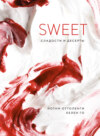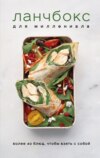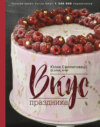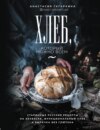Читать книгу: «Fresh Leaves», страница 16
The poor young creature (none the less to be pitied, had she sinned) goaded to madness by the gathering crowd, seized her long trailing tresses, and tossing them up like a veil over her shame-flushed and beautiful face, resigned herself to her fate.
Many will think any expression of sympathy for this poor unfortunate, uncalled for. There are enough to defend that side of the question, and to them I willingly leave it; there are others, who, with myself, could wish that young girls thus (it may be innocently) accused, should not, before trial, be dragged roughly through the public streets, like shameless, hardened offenders. There are those who, like myself, as they look upon the faces of their own fair young daughters, and think of the long life of happiness or misery before them, will wish that the sword of the law might be tempered with more mercy.
The two scenes above recorded, are not all that I saw from under my parasol, on that sunny morning. I passed the great bow-windows of the St. Nicholas – those favorite lounging-places for male guests, and other gentlemen, well pleased to criticise lady pedestrians, who, thanks to the inventor of parasols, can dodge their battery of glances at will.
Not so, the gentlemen; who weary with travel and sight-seeing, unthinkingly fall asleep in those luxurious arm-chairs, in full view of the public, with their heels on the window-sill, their heads hanging on one side, and their wide-open mouths so suggestive of the —snore– that I fancy I hear. Heaven forgive these comical-looking sleepers the cachinatory sideaches they have often given me!
Was there ever any thing uglier than a man asleep? Single women who have traveled in railroad cars, need not be too modest to answer!
One of the first things I noticed in New York, was the sharp, shrill, squeaking, unrefined, vixenish, uneducated voices of its women. How inevitably such disenchanting discord, breaks the spell of beauty!
Fair New Yorkers, keep your mouths shut, if you would conquer.
By what magnetism has our mention of voices conjured up the form of Dr. Lowell Mason? And yet, there he is, as majestic as Old Hundred – as popular – and apparently as indestructible by Time. I would like to see a pupil of his who does not love him. I defy any one to look at this noble, patriarchal chorister (as he leads the congregational singing on the Sabbath, in Dr. Alexander’s church) with an unmoistened eye. How fitting his position – and oh! how befitting God’s temple, the praise of “all the people.” Should some conquering hero, whose blood had been shed, free as water, for us and ours, revisit our shores, oh, who, as his triumphal chariot wheels rolled by, would pass over to his neighbor for expression the tumultuous gratitude with which his own heart was swelling?
That the mantle of the father should have fallen on the son, is not surprising; and they who have listened delightedly at Mr. William Mason’s “Musical Matinée’s” must bear witness how this inherited gift has been enriched by assiduous culture. Nature in giving him the ear and genius for a pianist, has also finished off his hands with such nicety, that, as they dart over the keys, they look to the observer like little snow-white scampering mice.
Ah – here is Dr. Skinner! no misnomer that: but what a logician – what an orator! Not an unmeaning sentence – not a superfluous word – not an unpolished period escapes him. In these day of superficial, botched, evangelical apprentice-work, it is a treat to welcome a master workman. Thank Providence, all the talent is not on the side of Beelzebub!
Vinegar cruets and vestry meetings! here come a group of Bostonians! Mark their puckered, spick-and-span self-complaisance! Mark that scornful gathering up of their skirts as they sidle away from that gorgeous Magdalen who, God pity and help her, may repent in her robes of unwomanly shame, but they in their “mint and anise,” whitewashed garments —never!
I close with a little quotation, not that it has any thing to do with my subject, but that it is merely a poetical finish to my article. Some people have a weakness for poetry; I have; it is from the pen of the cant-hating Hood.
“A pride there is of rank – a pride of birth,
A pride of learning, and a pride of purse,
A London pride – in short, there be on earth
A host of prides, some better, and some worse;
But of all prides, since Lucifer’s attaint,
The proudest swells a self-elected saint.
To picture that cold pride, so harsh and hard,
Fancy a peacock, in a poultry-yard;
Behold him in conceited circles sail,
Strutting and dancing, and planted stiff
In all his pomp and pageantry, as if
He felt “the eyes of Europe” on his tail!”
THE CONFESSION BOX
I confess to being nervous. I don’t admire the individual who places a foot upon the rounds of the chair on which I am sitting; or beats a prolonged tattoo with his fingers on the table; or stands with his hands on a creaking door, moving it backward and forward, while he performs an interminable leave-taking; or spins napkin-rings, while he waits for the dessert; or tips his chair back on its hind legs, in the warmth of debate; or tells jokes as old as Noah’s ark; or levels volleys of puns at me when I am not in the laughing mood.
Yes, I’m nervous. I would rather not hear a dog bark more than half the night. The scissors-grinder’s eternal bell-tinkle, and the soap-fat man’s long-drawn whoop, send me out of my chair like a pop-gun. I break down under the best minister, after “forty-ninthly;” and am prepared to scream at any minute after every seat in a street car is filled, and every body is holding somebody in their laps; and somebody is treading on every body’s toes in the aisle; and every door and window is shut; and onions and musk, and tobacco and jockey-club, and whisky, and patchouli are mingling their sweets; and the unconscionable conductor continues to beckon to misguided females upon the sidewalk, with whole families of babies (every one of whom is sucking oranges or sugar-candy), to crowd in, and add the last drop of agony to my brimming cup.
Yes, I think I may say I am nervous. I prefer, when the windows of an omnibus are open, and the wind “sets that way,” that the driver should not ex-spit-orate any oftener than is necessary. If the skirt of my dress must be torn from my belt by hasty feet upon the sidewalk, I prefer it to be done by a man’s boot rather than a woman’s un-apologizing slipper; if the fringe of my mantle is foreordained “to catch,” the gods grant it may be in a surtout button rather than on a feminine watch-chain. If women shopkeepers were less lavish of cross looks, and crossed sixpences, I might have more faith in the predicted “millennium.” I don’t wish the Irish woman any harm who tortures me by grinding on her accordeon in the cars, but, if I thought she had settled her little reckoning with the priest, I should be happy to peruse her obituary. I had rather not exchange a pleasant parlor circle for the company of a huge bundle of “proof, to be called for by seven o’clock the next morning;” and I had rather not have the pianos, in five different houses near, each playing different tunes while I am revising it. I don’t wish to interfere with infant boys who are fond of bonfires, but if they could make them of something beside dried leaves, it would be a saving to my bronchial apparatus. If people who address me would spell “Fanny” with two ns, I should be more likely to answer their letters. If the little cherub, in jacket and trowsers, who blows the organ of a Sunday, would stand behind a screen, it would materially assist my devotions. If all the men in New York had as handsome a beard as the editor of the – , I would not object to see them h – air ’em. I should rather the New Yorker would not say that such and such a paragraph would “go all over,” instead of “everywhere.” I should rather the Connecticuter, when he does not comprehend me, would not startle me out of my chair with a sharp Which? I should rather the Yankee would not say “he was going to wash him,” or speak of the “back side of the church.” And, lastly, if all the people who are born with seven fingers on one hand, or feet minus toes, or two noses, would not select me in the street to inspect their monstrosities, my epitaph might possibly be deferred a while longer.
A WORD TO PARENTS AND TEACHERS
I have before me a simple but imploring letter from a little child, begging me “to write her a composition.” I could number scores of such which I have received. I allude to it for the sake of calling the attention of parents and teachers to this cruel bugbear of childhood, with which I can fully sympathize, although it never had terrors for me. The multiplication table was the rock on which I was scholastically wrecked; my total inability to ascertain “if John had ten apples, and Thomas took away three, how many John would have left,” having often caused me to wish that all the Johns in creation were – well, never mind that, now. I have learned to like Johns since!
But to return to the subject. Just so long as themes like “The Nature of Evil,” or “Hydrostatics,” or “Moral Science,” and kindred subjects, are given out to poor bewildered children, to bite their nails and grit their teeth over, while the ink dries on the nip of their upheld pens, just so long will “composition day” dawn on them full of terrors. Such themes are bad enough, but when you add the order to write three pages at a mark, you simply invite them to diffuse unmeaning repetitions, as subversive of good habits of composition as the command is tyrannical, stupid, and ridiculous. You also tempt to duplicity, for a child, cornered in this way, has strong temptations to pass off for its own what is the product of the brains of another; and this of itself, as a matter of principle, should receive serious consideration at the hands of these child-tormentors. A child should never be allowed, much less compelled to write words without ideas. Never be guilty of such a piece of stupidity as to return a child’s composition to him with the remark, “It is very good, but it is too short.” If he has said all he has to say, what more would you have? what more can you get but repetition? Tell him to stop when he gets through if it is at the end of the first line– a lesson which many an adult has yet to learn.
In the first place, give a child no theme above his comprehension and capacity; or, better still, allow him to make his own selection, and always consider one line, intelligibly and concisely expressed, better than pages of wordy bombast. In this way only can he be taught to write well, sincerely, and fluently. Nature teaches you this: The little bird at first takes but short flights to the nearest twig or tree. By-and-by, as his strength and confidence grow, they are voluntarily and pleasurably lengthened, till at last you can scarce follow him, as he pierces the clouds. This forcing nature – pushing the little fledgeling rudely out of the nest, can result only in total incapacity, or, at best, but crippled flights. In the name of the children, I enter my earnest protest against it, and beg teachers and parents to think of and remedy this evil.
BREAKFAST
Let the world fly off its axle any hour in the twenty-four, save the breakfast hour. Ruffle me not then, and I promise to out-Socrates Socrates, though it should rain tribulations all the rest of the day. If I am to have but one glimpse of sunshine until nightfall, let it be then. A plague on him or her who sits down to coffee (all hail coffee!) with a doleful phiz. The witches fly away with that female who presents herself in curl-papers, or introduces herself with a yawn. Unassoiled be that grocer, who offends my proboscis with a doubtful egg; garroted be that dairyman who waters my milk; kneaded be that fat podge of a baker who is tardy with his hot rolls.
Tell me no disagreeables – be not argumentative over our Mocha; discourse not of horrid murders, nor yet dabble in the black sea of politics. Tell me not the price of any article I am eating, neither inquire of me prematurely what I will have for my dinner. Let thy “Good-morning” have heart in it, and touch thy lips to my eyelids as thou passest to thy seat. If thou hast a clover-blossom, or a babe, set it before me; and dream not, because my heart’s incense rises silently as its perfumed breath, that I praise not God for the sweet morning.
GREENWOOD AND MOUNT AUBURN
I have seen Greenwood. With Mount Auburn for my ideal of what a cemetery should be, I was prepared for disappointment. But the two are not comparable. Greenwood is the larger, and more indebted to the hand of art; the gigantic trees of Mount Auburn are the growth of half a century; but then Greenwood has its ocean view, which, paradoxical as it may seem, is not to be overlooked. The entrance to Mount Auburn I think the finer. Its tall army of stately pines stand guard over its silent sleepers, and strew their fragrant leaves on the pathway, as if to deaden the sound of the carriage wheels, which, at each revolution, crush out their aromatic incense, sweet as the box of spikenard which kneeling Mary broke at Jesus’ feet.
Greenwood has the greater monumental variety, attributable, perhaps (more than to design), to the motley population of New York; the proprietors of each tomb, or grave, carrying out their national ideas of sepulture. This is an advantage. Mount Auburn sometimes wearies the eye with its monumental monotony. Mount Auburn, too, had (for he long since laid down in its lovely shade), a gray-haired old gate-keeper, courteous and dignified: “a man of sorrows,” whose bald, uncovered head, many will remember, who have stood waiting at the portal to bear in their dead. Many a bouquet, simple but sweet, of my favorite flowers have I taken from his palsied hand; and many a sympathizing look, treasured up in my heart from him whom Death had also bereft of all. Greenwood has, at least if my afternoon visit was a fair exponent, its jocund grave-diggers, who, with careless poise, and indecent foot, of haste stumble on with the unvarnished coffin of the poor, and exchange over the fresh and narrow mound, the comrade’s time-worn jest. Money has its value, for it purchases gentler handling and better manners.
Let those who will, linger before the marble statue, or chiseled urn of the rich; dearer to me is the grave of the poor man’s child, where the tiny, half-worn shoe, is sad and fitting monument. Dearer to me, the moldy toys, the whip, the cap, the doll, the faded locks of hair, on which countless suns have risen and set, and countless showers have shed their kindly tears. And yet for the infant army who slumber there, I can not weep; for I bethink me of the weary toil and strife; the wrecks that strew the life-coast; the plaint of the weary-hearted, unheard in life’s fierce clamor; the remorseless, iron heel of strength, on the quivering heart of weakness; the swift-winged, poisoned arrow of cruel slander; the hearts that are near of kin as void of love; and I thank God that the little shoes were laid aside, and the dreary path untrod.
And yet, not all drear, for, as I pass along, I read, in graven lines, of those who periled life to save life; who parted raging billows and forked flames, at woman’s wild, despairing shriek, and childhood’s helpless wail. Honor to such dauntless spirits, while there are eyes to moisten and hearts to feel!
Beautiful Greenwood! with thy feathery swaying willows, thy silver-voiced fountains and glassy lakes: with thy grassy knolls and shady dells; with thy “Battle Hill,” whose sod of yore was nourished by brave men’s blood. The sailor here rests him well, in sound of old Ocean’s roar; the fireman heeds nor booming bell, nor earthly trump, nor hurried tramp of anxious feet; the pilot’s bark is moored and voyage o’er; the school-boy’s lesson conned; beauty’s lid uncloses not, though rarest flowers bloom above her; no husband’s hand is outstretched to her who stoops with jealous care to pluck the obtrusive weed which hides the name she, lonely, bears; no piping, bird-like voice, answers the anguished cry, “My child, my child!” but, still the mourners come, and sods fall dull and heavy on loved and loving hearts, and the busy spade heeds never the dropping tears; and for her who writes, and for them who read – ere long – tears in their turn shall fall. God help us all.
GETTING UP THE WRONG WAY
It was an unlucky day; every body has known such. I got up just one hour too late, and spent the whole day vainly trying to make it up. It was useless. Things were predestined to go wrong. I felt it. Hooks and eyes, strings and buttons were in the maddening conspiracy. Shoes and stockings were mis-mated; there was a pin in the towel on which I wiped my face; my hair-brush and comb had absconded, and my tooth-brush and nail-brush had gone to keep them company. I ate a hurried breakfast, salting my coffee and sugaring my beefsteak: for I recollected that I had pressing business down town which required a cool head and punctual feet. As I looked at my watch, I saw that it was already time that I was on my way. I wound it up with a jerk, snapping the crystal, and dislocating a spring. Now my boot laces knotted and twisted, and defied every attempt to coerce them into duty; and what was worse, upon looking for the MS. (the product of hours and days of labor), I found that I had burned it, in my absent state of mind, along with some waste paper! and I recollected with agony how indifferently I had watched the last sparkling fragment, as the hated wind merrily whistled it up the chimney.
I held my head for one distracted minute! Was it possible to recall it as it was originally written? Even suppose I could? think of all that lost labor (on heavenly days, too, when the pleasant sunlight wooed me out-of-doors), and think of all that jog-trot punctuating to be gone over again. For me, who hate stops – who believe only in an exclamation point and a dash! I, who turn my back disdainfully upon an interrogation point, who despise coal-on (save in January), who religiously believe that a writer should no more be expected to fritter away his brains on stupid stops, than that an artist should be required to manufacture with his own hands the wooden frames used for his pictures.
Well, the MS. was gone – stops and all – past praying for. I had not even time to whine about it; I must go directly down town. I had the misfortune to be boarding, so every drawer, closet, and cupboard must be locked before starting; for locking one’s room door is a mere farce while there are duplicate keys in the house. Yes, I locked them, and unlocked them, too, twenty times or more, as I recollected some handkerchief, collar or purse, which I had forgotten to take out.
All right now, said I, dolorously, as I put the rattling keys in my pocket, descended the interminable hotel stairs, and gained the street. I had passed two blocks when I discovered that the pair of gloves I had brought were both for one hand; the thermometer was at nipping point and I had left my muff behind! I thrust one bare hand into my shawl, shut my teeth together, and exclaimed, as I looked Fate full in the face – now, do your worst.
And so it did!
Down came the snow; had I taken my umbrella, not a flake would have fallen; every body knows that. I looked at the omnibusses; they were all full – full of great, lazy, black-coated men. I hate a black coat; I don’t know why a man, unless he has received “the right hand of fellowship,” should button himself up in one. Yes, there they sat, as solemn as so many parsons, with their hats slouched over their faces, thinking to save time (while they ruined their eye-sight) by reading the morning papers as they joggled along to their offices. Meanwhile down came the pitiless snow, as I plodded along. Plodded, for every wheel-barrow, box, bale, cask, cart, and wagon, got purposely across my track; and not for the life of me could I remember a sentence of that ascension MS.
I tried not to meet any body, but I met every body, and every body would speak to me: beggars stopped me, country folks singled me out to inquire the way —me! why me? with a street full of people? Did I direct them wrong? Let them learn to ask somebody next time who does not mourn a lost MS.; somebody whose life is not spent in locking up things and losing the keys; somebody who is not required to write an article with a stupid chambermaid flying in and out every ten minutes, leaving your door ajar, whirling your papers across the room, and scattering your ideas to the remorseless winds; somebody whose meals are not always not to be had, when type and printers wait for no woman.
This is a digression. I reached the goal at last; simply and only because one who keeps moving must inevitably fetch up somewhere. I performed my errand, or thought I had, till I had got half-way home, when I recollected an important fact omitted —n’importe. I was desperate now. Guns and pistols could not have turned my steps back again. How it blew! how it snowed! I did not hurry one step; I took a savage pleasure in thinking of my spoiled bonnet-ribbon, wet feet, and ice-ermined skirts. I even stopped, as I observed some umbrella-shielded pedestrian looking wonderingly at me, and gazed with affected delight at the miserable feminine kick-shaws in the shop windows, just to show my sublime indifference to the warring elements.
I reached my room, by dint of climbing the obnoxious stairs. I turned the key, as I fondly hoped, on all my species.
Rat, tat, rat, tat!
Shall I hear it?
Not I!
Rat, tat, tat, rat, tat!
It is of no use; I shall go mad with that thumping. I had rather face Cloven Foot himself than hear it. I open the door; it is my washerwoman. She has a huge pile of clothes to be counted, and sorted, and paid for, too! She dumps them down on the floor, just as if every minute was not to me so much gold-dust until that MS. was resurrectionized. I look around for my list of the clothes. It is not in the big dictionary, no, nor in the Bible, no, nor in the pocket of my blue, red, gray, green, or plaid dress.
Bother! I exclaim, I can’t find it. I dare say you have them all right; so I commence taking them out, and counting the pieces with an eye to her pay. What’s that? A dickey, two shirts, and a vest! I hold them up to the light with the tips of my fingers.
Woman alive! what need has a female of such garments?
She had made a mistake. She had brought me Mr. – ’s clothes – I will not expose him by telling his name, for they were wretchedly ragged; but as I turned the key again on them and her, I squeezed this drop of comfort out of my misery – Thank heaven, I have not to mend those clothes!
Rat, tat, tat! Merciful man! what now?
A bundle of proofs, big as my head, to read and return by the bearer immediately, and quick at that.
I sat down. So did the devil. I began to read, pen in hand. I could not remember, with my bewildered brain, whether “stet” stood for “let it be,” or “take it out;” or what “d” signified in a typesetter’s alphabet. I read on. Could it be possible that I ever wrote such a disconnected sentence as this? No, they have left out an entire line; and forgot to send the MS. copy, too!
Devil take it! I exclaim; and so he does (the literal infernal!) and is out of sight before I can explain that the unorthodox exclamation was wrung out of me by the last drop in my brimming cup on that unlucky day.
Покупайте книги и получайте бонусы в Литрес, Читай-городе и Буквоеде.
Участвовать в бонусной программе




















